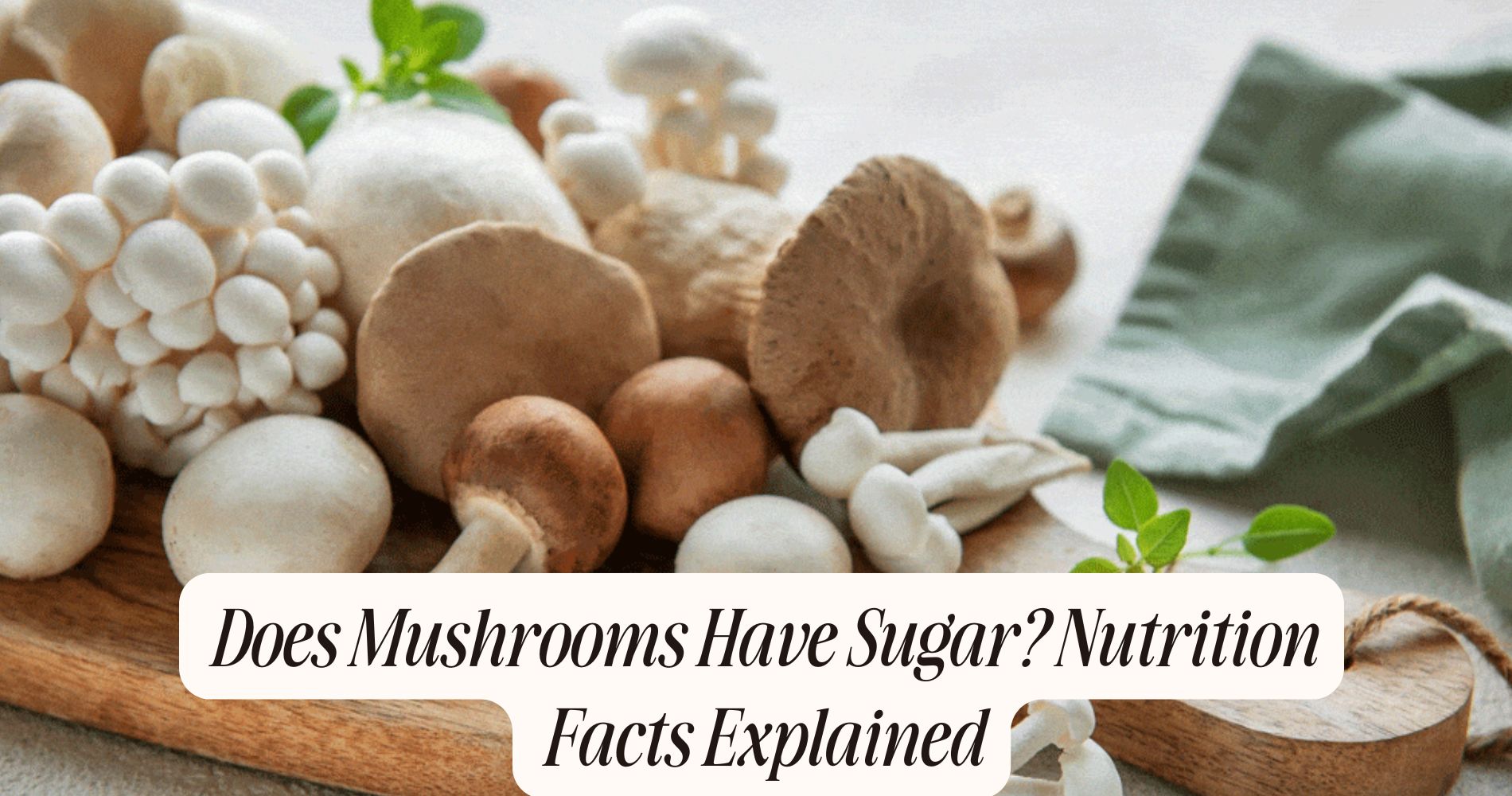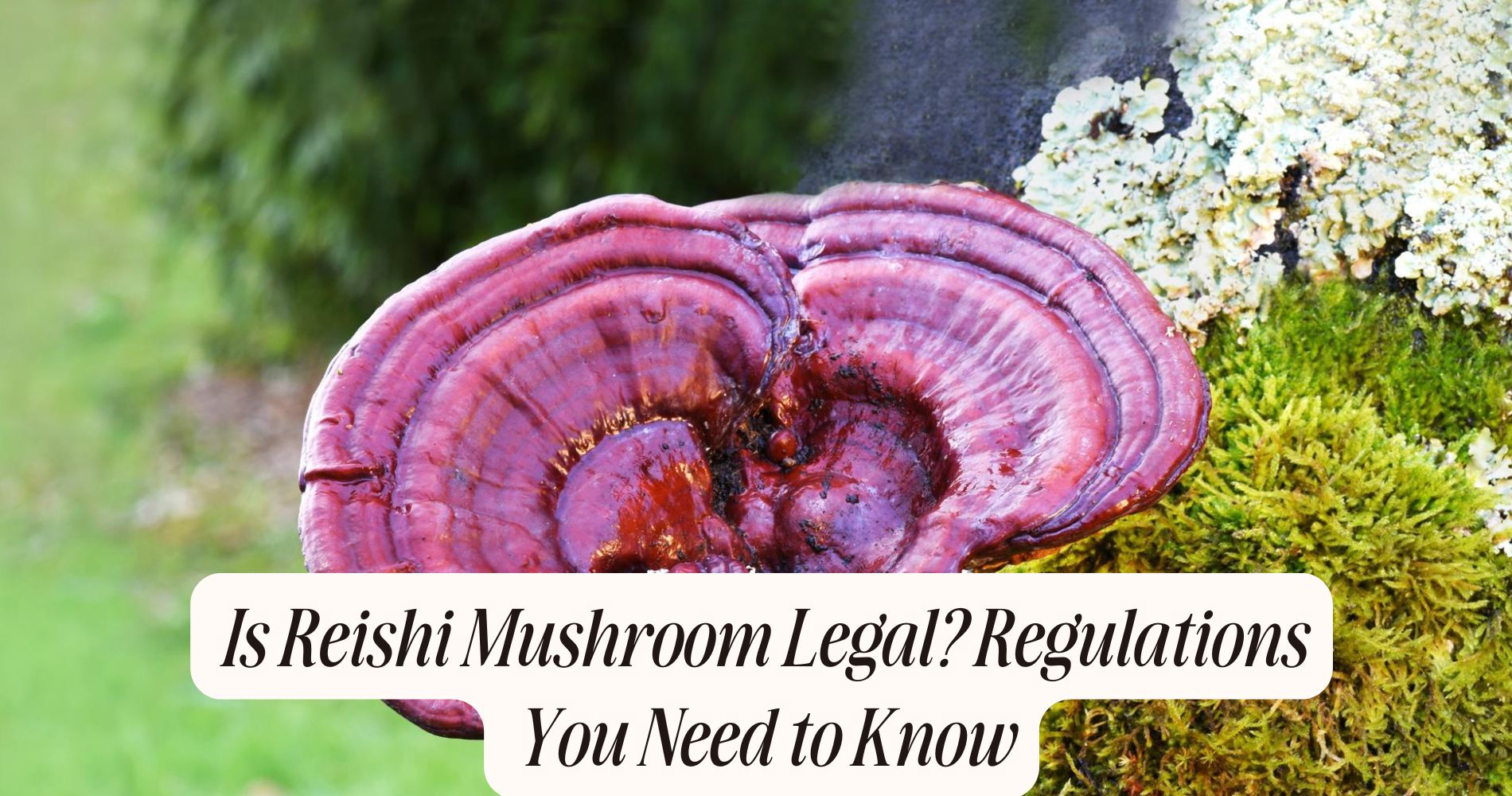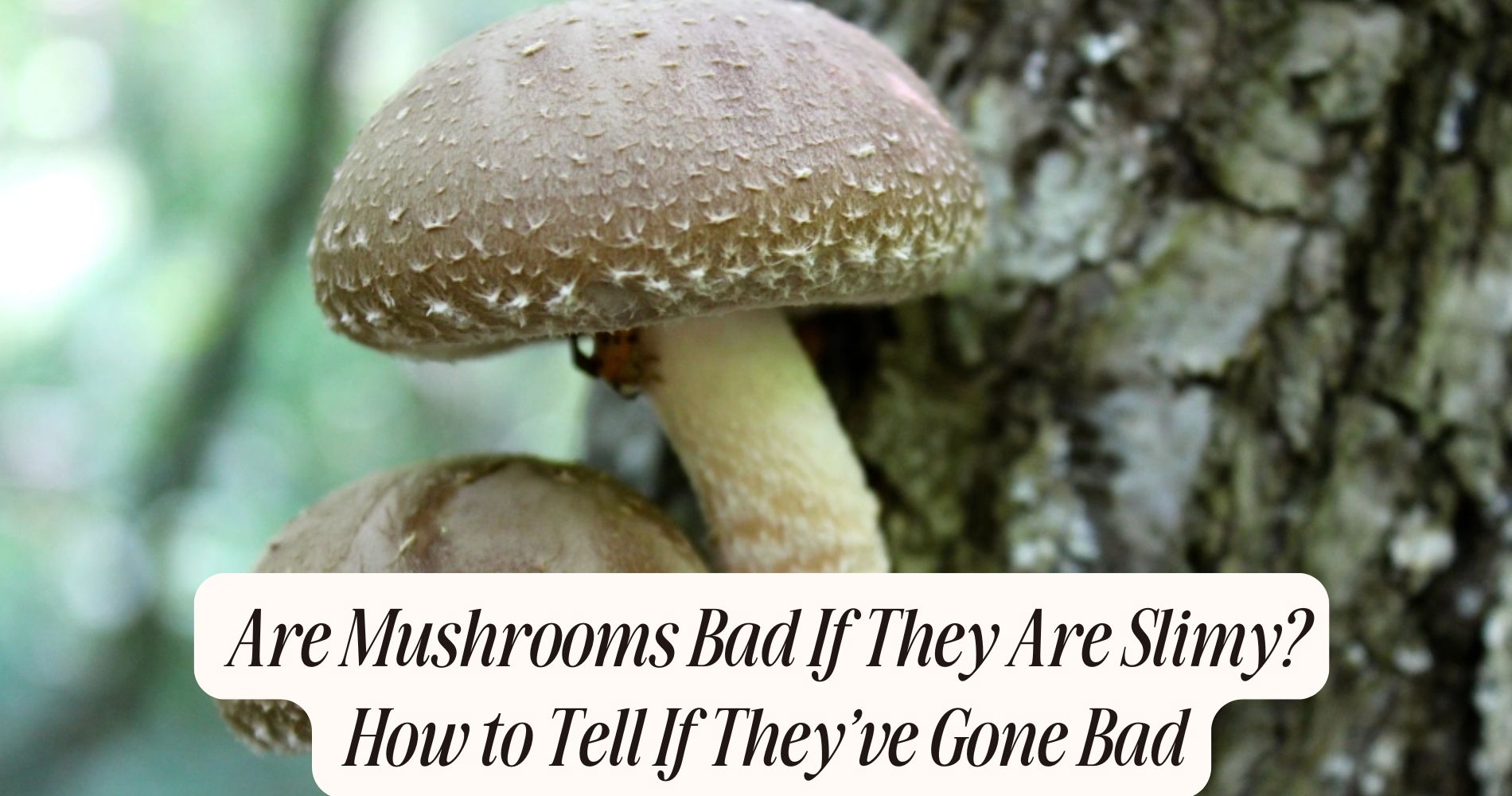
Does Mushrooms Have Sugar? Nutrition Facts Explained
Does mushrooms have sugar? Mushrooms contain minimal sugar, averaging about 0.5 grams per 100 grams. This low sugar content primarily consists of simple carbohydrates, making them an excellent choice if you're monitoring your sugar intake. Different varieties, like shiitake and portobello, not only have low sugar levels but also offer unique nutritional benefits, such as antioxidants and immune support. If you want to learn about their health benefits and how to incorporate them into your diet, keep exploring!
Understanding the Sugar Content in Mushrooms
Have you ever wondered how much sugar is actually in mushrooms? While many people think of mushrooms as savory and low in sugar, the reality varies by mushroom types.
Most common varieties, like button and shiitake, contain minimal sugar—typically less than one gram per 100 grams. The sugar present mainly consists of simple carbohydrates, which can be easily utilized during sugar metabolism.

Curiously, certain mushroom types, like maitake, have been found to contain slightly higher sugar levels, yet they still fall within a low range compared to fruits and other vegetables.
This low sugar content makes mushrooms a great addition to your diet if you're monitoring sugar intake, allowing for versatile culinary use without significant impact on your overall sugar consumption.
Nutritional Profile of Common Mushroom Varieties
When exploring the nutritional profile of common mushroom varieties, you'll find they offer a unique blend of vitamins, minerals, and bioactive compounds.
For instance, white button mushrooms are low in calories and provide potassium and B vitamins, while shiitake mushrooms are rich in polysaccharides that support immune health.

Portobello mushrooms stand out with their high levels of selenium and antioxidants. Each of these mushroom varieties showcases nutritional differences that can enhance your diet in various ways.
Additionally, oyster mushrooms contain ergothioneine, a powerful antioxidant, contributing to their health benefits.
Health Benefits of Incorporating Mushrooms in Your Diet
Incorporating mushrooms into your diet can greatly enhance your overall health, as they're packed with essential nutrients and unique bioactive compounds.
Studies show that mushrooms can boost immune support due to their high levels of beta-glucans and antioxidants, which help the body fend off infections and diseases.
Additionally, their low-calorie content, combined with a high fiber profile, makes them an excellent choice for weight management.
By adding mushrooms to your meals, you not only increase nutrient density but also promote satiety, helping you feel fuller longer without excessive calories.
This dual benefit of immune support and weight management highlights why mushrooms deserve a regular spot on your plate, contributing to a balanced and health-conscious lifestyle.
Comparing Sugar Levels in Mushrooms vs. Other Vegetables
While many vegetables provide a range of nutrients, their sugar content can vary greatly, making mushrooms an interesting comparison.
Mushrooms typically contain low levels of sugar, averaging around 0.5 grams per 100 grams, which contributes to their subtle mushroom sweetness. In contrast, vegetables like carrots or beets can have notably higher sugar levels, sometimes exceeding 4 grams per 100 grams.

This vegetable comparison highlights how mushrooms can be a smart choice for those monitoring sugar intake while still enjoying a variety of nutrients.
Additionally, the unique flavor profile of mushrooms allows them to enhance dishes without adding excess sweetness, making them a versatile option in various diets, including low-sugar or ketogenic ones.
Myths and Misconceptions About Mushrooms and Sugar
Though many people believe that mushrooms contain high sugar levels, this misconception can obscure their true nutritional value.
In reality, mushrooms are low in sugar, debunking common mushroom myths. While some might think they contribute considerably to carbohydrate intake, the sugar content is minimal compared to other vegetables.
For instance, a cup of raw mushrooms has less than 1 gram of sugar, a fact often overlooked due to sugar misconceptions. This low sugar level makes mushrooms a favorable choice for those monitoring their sugar intake.
Tips for Preparing and Enjoying Mushrooms Wisely
When you're preparing mushrooms, understanding the best methods can enhance both their flavor and nutritional value. Using proper cooking techniques is essential; sautéing or roasting mushrooms can intensify their umami flavor while preserving crucial nutrients.
Avoid boiling, as it can lead to nutrient loss and a watery texture.
Experiment with various flavor pairings to elevate your dishes. Mushrooms pair wonderfully with garlic, thyme, and balsamic vinegar, which can enhance their natural taste. Additionally, combining them with proteins like chicken or tofu boosts the dish's overall nutritional profile.
Always clean mushrooms gently with a damp cloth instead of rinsing them, which helps maintain their texture and flavor.
Elevate Your Health with SUPER MUSHROOM GUMMIES
Looking for an easy way to enjoy the benefits of functional mushrooms? Try SUPER MUSHROOM GUMMIES from Well Gummies! Packed with 10 powerful mushroom varieties, these chewable gummies naturally support your energy, focus, and immune system—without the hassle of powders or capsules. Plus, they taste like fresh wild berries, making them as enjoyable as your favorite candy. No jitters, no crash—just calm, sustained energy to keep you shining all day. Add them to your daily routine and experience the power of mushrooms in the most delicious way!
Frequently Asked Questions
Can Mushrooms Cause Blood Sugar Spikes in Diabetics?
Mushrooms, with a low glycemic index, typically don't cause blood sugar spikes in diabetics. Incorporating them into diabetes-friendly recipes can enhance flavor and nutrition without greatly impacting your blood sugar levels.
Are There Sugar-Free Mushroom Products Available?
Yes, you can find sugar-free mushroom products, including mushroom extracts that offer health benefits without added sugars. Many brands also use sugar substitutes, making them suitable for those looking to reduce sugar intake while enjoying mushrooms.
How Do Cooking Methods Affect Mushroom Sugar Content?
Cooking techniques like sautéing or roasting can enhance sugar reduction in mushrooms. High heat caramelizes sugars, while steaming may retain them. Understanding these effects helps you choose methods that align with your dietary goals.
Do Different Mushroom Types Have Varying Sugar Levels?
Different mushroom varieties do have varying sugar content. For instance, shiitake mushrooms often contain more sugars compared to button mushrooms. Understanding these differences can help you choose the right type for your dietary needs.
Can Mushrooms Be Included in a Low-Sugar Diet?
You can definitely include various mushroom varieties in a low-sugar diet. They're low in carbohydrates and can enhance low sugar recipes, providing flavor and nutrients without greatly impacting your overall sugar intake.
Conclusion
To sum up, mushrooms contain minimal sugar, making them a nutritious choice for your diet. With their low caloric content and a wealth of vitamins, minerals, and antioxidants, they offer numerous health benefits. By understanding their nutritional profile and debunking common myths, you can confidently incorporate various mushroom varieties into your meals. So, go ahead and enjoy mushrooms in your favorite dishes, knowing you're making a healthy choice that supports your overall well-being.




